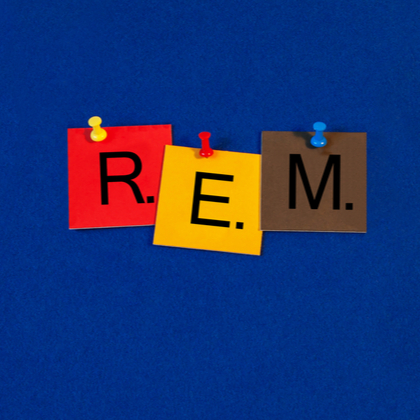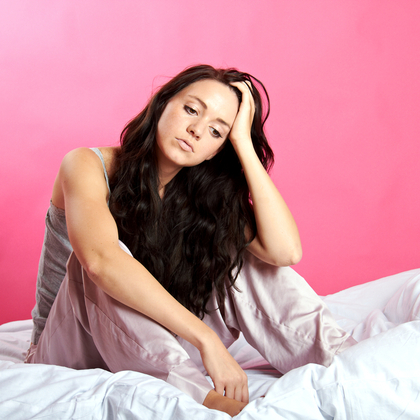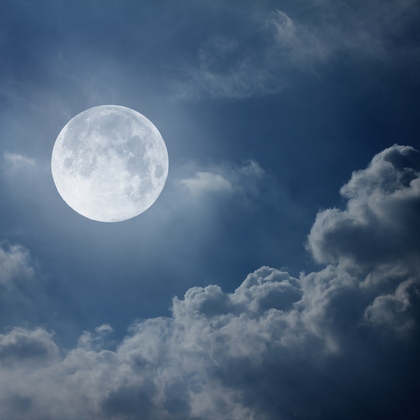
We’ve become a chronically underslept nation: as many as 16 million UK adults now suffer from sleepless nights and insomnia1. There are many reasons for this: a failure to prioritise sleep, poor sleep hygiene, sleep disorders, or chronic health conditions.
What makes sleep deprivation such a heavy burden is that it almost always has negative psychological implications. This is because sleep problems and mental health issues are mutually reinforcing.

Sleep is an important form of emotional convalescence and overnight therapy. Sleep deprivation, therefore, can exacerbate or lead to changes in your psychological and mental state. And if you face mental health challenges – namely, anxiety and depression – you are more likely to experience insomnia and sleep deprivation.
Navigating the combination of sleep deprivation and poor psychological health can be incredibly difficult. Fortunately, there are steps you can take to improve both aspects of your life. Here, we take a deeper look at the leading causes and effects of sleep deprivation and offer ways to tackle them.
What is sleep deprivation?
Sleep deprivation refers to a continued or chronic lack of sleep. While sleep requirements vary from person to person, experts generally agree that most adults need seven to nine hours of sleep each night. Regularly short-changing yourself of sleep can impact the functioning of every system in the body, especially your cognitive, emotional, and psychological health2.
What are the main causes of sleep deprivation?
Based on all the scientific evidence, sleep is the elixir of life. And yet, some people still consider it a waste of time or luxury – a period in which our bodies and mind lay dormant. Guided by this belief, many individuals consciously deprive themselves of sleep to prioritise work obligations, socialising, or entertainment – as seen by the rise in late-night screen use, which further disrupts sleep due to blue-light exposure.
Poor sleep hygiene also contributes to sleep deprivation; forging unhealthy daily habits and failing to optimise your bedroom isn’t favourable for high-quality sleep.
Others may become sleep deprived due to various family or professional responsibilities, like raising a newborn or shift work.
Hormonal changes – such as those experienced before menstruation – chronic illnesses, sleep disorders, and mental health challenges can also lead to sleep deprivation.
What are the main symptoms of sleep deprivation?
The main symptoms of sleep deprivation include excessive daytime tiredness and daytime impairment. This all-consuming fatigue can make it harder to stay awake when you need to. In some instances, this may lead to microsleeps where you fall asleep momentarily, increasing the risk of unintentional accidents and errors, especially when driving3.
However, sleep deprivation can affect you in many other ways, too.
-
Reduced attention span
-
Compromised memory
-
Slowed thinking
-
Lack of energy
-
Risky decision-making
-
Psychological changes, including increase stress, anxiety, depression, or irritability4
It’s worth noting symptoms can vary slightly depending on whether your sleep deprivation is acute or chronic. Acute sleep deprivation refers to a relatively short period of sleeplessness, while chronic sleep deprivation describes insufficient sleep that lasts longer than three months.
What are the psychological effects of sleep deprivation?
Sleep issues and psychological challenges often operate in a negative feedback loop. That’s why sleep deprivation is almost always universal in psychological disorders – and why doctors will use sleeping patterns to inform their diagnosis. Chronic sleep deprivation can have serious long-term consequences and is often associated with poor mental health outcomes, such as depression, anxiety, and suicidal ideation5.
Depression and low mood
Chronic sleep deprivation can lead to or exacerbate depressive symptoms. Depression is characterised by persistent feelings of hopelessness, unhappiness, and tearfulness. Around 75 per cent of people with depression also experience insomnia and sleep deprivation6.
Research suggests sleep deprivation increases the activity of the amygdala – the brain’s fear centre, which governs our emotional reactions7.Without enough sleep, our amygdala goes into overdrive and makes us feel more emotionally reactive.
Sleeplessness was once seen as a comorbidity of depression8. However, growing evidence suggests poor sleep may cause or worsen depressive symptoms. The two have a bidirectional relationship, making it hard to identify the exact cause or effect9.
Anxiety and stress
Sleep deprivation and anxiety are also closely connected. It’s been suggested that a lack of REM sleep – the principal stage in which we dream – may be responsible for increased stress and anxiety.
Scientists are still unsure why rapid-eye-movement (REM) sleep is so restorative for our brain. One theory is that the brain doesn’t secrete the stress hormone norepinephrine during REM sleep. The ‘REM calibration hypothesis’ proposes REM sleep can reset the levels of norepinephrine, making the brain less reactive and sensitive to emotional stimuli10. If your norepinephrine levels are out of whack, you may be more susceptible to stress and anxiety.
Like depression, sleep deprivation and anxiety are mutually reinforcing. This reciprocal relationship means sleep deprivation can cause anxiety, leading to more sleep deprivation and more anxiety.
Irritability and anger
Without the positive emotional and physiological regenerating effects of sleep, the brain reverts to more primitive ways of thinking, often amplifying feelings of irritability, frustration, and anger11.
Sleep – REM sleep, in particular – helps de-clutter the brain at night. REM sleep dreaming is a form of emotional first aid. It provides overnight mental health therapy and acts as a nocturnal soothing balm. REM sleep helps process the day’s happenings, taking the sharp edges off difficult emotional concerns. When you don’t get adequate amounts of it, your brain cannot cope as well.
New research suggests sleep-deprived individuals are angrier, more distressed, more exasperated, and less able to adapt to frustrating situations than those who get sufficient sleep12.
How do you cure sleep deprivation?
In most instances, prioritising sleep and optimising your sleep hygiene can help manage and prevent sleep deprivation.
Prioritise sleep
Sleep deprivation often arises when people fail to prioritise sleep in favour of leisure, work, or other commitments. Moreover, some people still believe sleeping makes you lazy, slothful, or idle. But this couldn’t be further from the truth. To quote the revered sleep researcher Allan Rechtschaffen, ‘if sleep does not serve an absolutely vital function, then it’s the biggest mistake the evolutionary process ever made’. A good night’s rest isn’t a luxury; it’s a necessity. And we all need to start prioritising at least seven to nine hours of it each night.
-
Avoid socialising and working after 7 pm: set boundaries in your personal and professional life to ensure you have enough time for restful sleep each night.
-
Set an alarm to remind you to go to bed: we set an alarm to wake us up in the morning, so why not use one to remind us to go to bed at night?
-
Enforce a no-screen rule 90-minutes before bed: it’s a sobering fact to learn Netflix’s biggest competitor is sleep. Avoid using screens in the 90-minutes before bed.
-
Keep all electronic devices outside of your bedroom: if screens are out of sight, you’ll be less likely to use them instead of sleeping.
-
Follow a relaxing bedtime routine: a consistent and relaxing bedtime routine puts you in the right headspace to sleep well each night.
Be careful of sleep thieves
Many things can, unknowingly, interfere with your sleep. Try limiting your use of them to support your sleep.
-
Avoid electronic devices 90-minutes before bed: the blue light from electronic devices suppresses your sleep hormone, melatonin.
-
Don’t drink caffeine after midday: caffeine has a quarter-life of 10-12 hours, so if you make a coffee at 4 pm, a quarter of it will still be in your system at 2 am, and you won’t be able to sleep as well as you could.
-
Avoid drinking excessive amounts of alcohol at night: drinking at night disrupts your overall sleep quality and quantity.
Adjust your sleep environment
Optimising your bedroom to make it conducive to rest is an important pillar of good sleep hygiene.
-
Ensure your bedroom is completely dark: darkness triggers the release of melatonin, the sleep hormone, which prepares the body for rest. That’s why it’s so important to ensure your bedroom is completely dark.
-
Keep your sleeping environment temperate: the optimal temperature for sleeping is 16-18 degrees.
-
Reduce noise: sleeping in a peaceful environment is essential. To drown out any noise, consider getting a pair of earplugs or a white noise machine.
-
Invest in good bedding: ensure your bedding, sheets, mattress, and pillows are comfortable.
Try natural support
Alongside lifestyle changes, supplements are another helpful way to improve your sleep hygiene and manage sleep deprivation.
-
Magnesium contributes to normal muscle and psychological function, making it a useful addition to support sleep.
-
Valerian root is a traditional herbal remedy used for the temporary relief of night-time disturbances and mild anxiety.
-
Theanine and Lemon Balm is often recommended to those who want to optimise their sleep.
-
St John’s Wort is a traditional herbal medicinal product used to relieve the symptoms of slightly low mood and mild anxiety.
-
Tart cherry juice is naturally rich in melatonin and often used for sleep.
We all need enough sleep to function properly. Sleep is the tide that raises all other health boats, including our emotional and mental health. Indeed, as we’ve explored, the psychological effects of sleep deprivation are far-reaching and incredibly challenging. To discover more ways to achieve restful sleep, visit the rest of our dedicated Sleep Health Hub.
References:
- insomnia, S., 2021. Sleepless cities revealed as one in three adults suffer from insomnia. [ONLINE] Aviva.com. Available at: https://www.aviva.com/newsroom/news-releases/2017/10/Sleepless-cities-revealed-as-one-in-three-adults-suffer-from-insomnia/
- Ninds.nih.gov. 2021. Brain Basics: Understanding Sleep National Institute of Neurological Disorders and Stroke. [ONLINE] Available at: https://www.ninds.nih.gov/Disorders/patient-caregiver-education/understanding-sleep
- Poudel GR, Innes CR, Bones PJ, Watts R, Jones RD. Losing the struggle to stay awake: divergent thalamic and cortical activity during microsleeps. Hum Brain Mapp. 35(1): 257-69.
- Pires GN, Bezerra AG, Tufik S, Andersen ML.(2016) Effects of acute sleep deprivation on state anxiety levels: a systematic review and meta-analysis. Sleep Med.24, 109-118.
- Bernert RA, Kim JS, Iwata NG, Perlis ML. (2015) Sleep disturbances as an evidence-based suicide risk factor. Curr Psychiatry Rep. 17(3: 554.
- Nutt D, Wilson S, Paterson L. (2008) Sleep disorders as core symptoms of depression. Dialogues Clin Neurosci. 10(): 329-36.
- Yoo, S., Gujar, N., Hu, P., Jolesz, F. and Walker, M., 2007. The human emotional brain without sleep — a prefrontal amygdala disconnect. Current Biology, 17(20), R877-R878.
- Ford DE, Kamerow DB. (1989) Epidemiologic study of sleep disturbances and psychiatric disorders. An opportunity for prevention? JAMA. 262(11): 1479–84.
- Franzen PL, Buysse DJ. (2008) Sleep disturbances and depression: risk relationships for subsequent depression and therapeutic implications. Dialogues Clin Neurosci. 10(4: 473-81.
- Gujar. N., McDonald. S.A., Nishida. M. & Walker. M.P. (2011). A role for REM sleep in recalibrating the sensitivity of the human brain to specific emotions. Cerebral cortex (New York, N.Y, 1991). 21(1), 115–123
- The Independent. (2019). Average Briton gets six hours and 19 minutes of sleep a night, study finds. Available online: https://www.independent.co.uk/life-style/sleeping-number-hours-night-british-average-6-hours-poll-stress-work-a8336081.html
- Krizan, Z., & Hisler, G. (2019). Sleepy anger: Restricted sleep amplifies angry feelings. Journal of Experimental Psychology: General, 148(7), 1239–1250.
Related Posts

Olivia
Olivia Salter has always been an avid health nut. After graduating from the University of Bristol, she began working for a nutritional consultancy where she discovered her passion for all things wellness-related. There, she executed much of the company’s content marketing strategy and found her niche in health writing, publishing articles in Women’s Health, Mind Body Green, Thrive and Psychologies.
View More



